Boredom can be a problem for seniors living in nursing homes. However, there are many ways to combat boredom and maintain an active and stimulating life. Indeed, days can seem long and monotonous for seniors who often have little activity and mental stimulation. The leisure activities offered by the facilities are not always adapted to the interests and abilities of the residents, which can contribute to their boredom. Prolonged boredom can have a negative impact on the mental and physical health of older adults, increasing their risk of depression and cognitive decline. It is therefore essential that senior care facilities offer varied and adapted activities to residents in order to preserve their well-being and quality of life.
Encourage participation in group activities
Senior care facilities often offer social and leisure activities for residents, such as games, gentle gymnastics, arts and crafts, painting, reading, outings, etc. Encouraging residents to participate in these activities can help maintain their interest and motivation. Encouraging group activities in nursing homes can have significant benefits for residents. These activities not only provide an opportunity to socialize, but they can also help stimulate the mind and body. Group activities help maintain a lively atmosphere and encourage interaction among residents, which can help prevent loneliness and social isolation. In addition, participating in group activities can help residents develop new skills and interests, as well as maintain their independence. Group activities can vary from music, dance, games, crafts, outings and much more. By encouraging group activities in nursing homes, residents can have a more active, fulfilling and happy life.
TOP CULTURE,
an international competition
Top Culture is an international competition that lasts two weeks and is organized twice a year. During the competition, thenursing homes’ residents form a team and compete against other facilities in France and around the world. Using an app on tablet, residents are asked to answer general knowledge questions. The tablet can be projected onto a bigger screen to create a group activity. The presence of a live ranking increases the motivation of the participants and makes the activity fun.
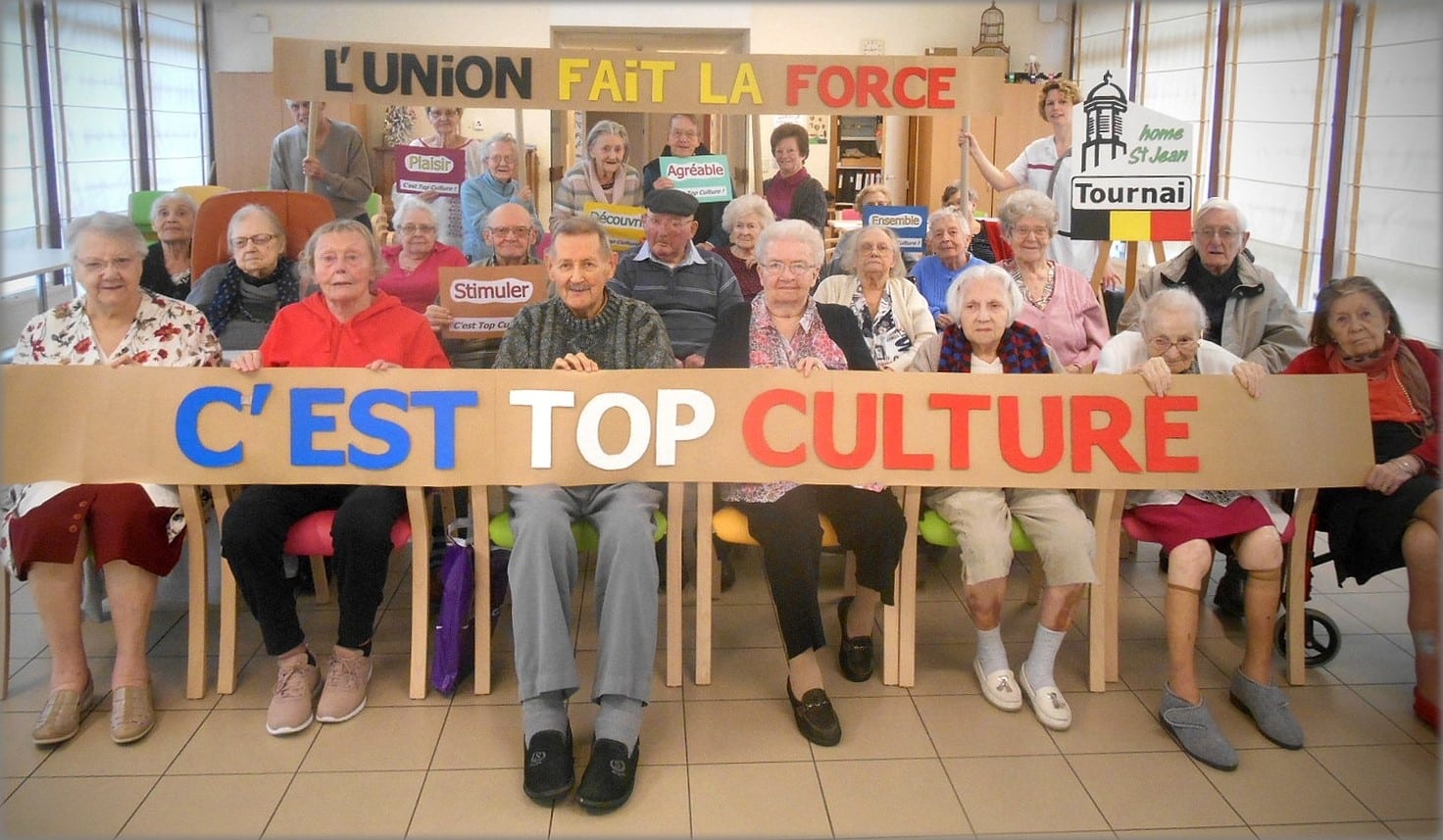
Encourage individual activities
Encouraging individual activities in senior liviving facilities is just as important as group activities. Some older adults prefer quieter, more solitary activities, and facilities must accommodate these individual preferences. Individual activities can help residents focus on their own interests and passions, and can also provide a moment of respite in a sometimes hectic day. Individual activities may include reading, writing, painting, puzzles, gardening, exercising and more. Residents may also choose to take advantage of free time to rest, relax, or spend time with their families. By encouraging individual activities, facilities can help respect residents’ choices and preferences, while providing a stimulating environment tailored to their needs.
Give a tablet to your parents
Gifting a tablet to your parents in a nursing home may seem like a good idea to maintain the social link with them. Indeed, seniors in these facilities can feel isolated and have fewer opportunities to communicate with family and friends. A tablet can help them stay connected with their loved ones, exchange messages and make video calls. In addition, tablets can also provide entertainment opportunities, such as reading e-books, listening to music and cognitive stimulation apps such as SCARLETT which offers more than 30 adapted games to work all the cognitive functions while having fun. Giving a tablet to your parent in a nursing home can help improve their quality of life by providing a window to the outside world and access to activities that can help keep them engaged and stimulated.
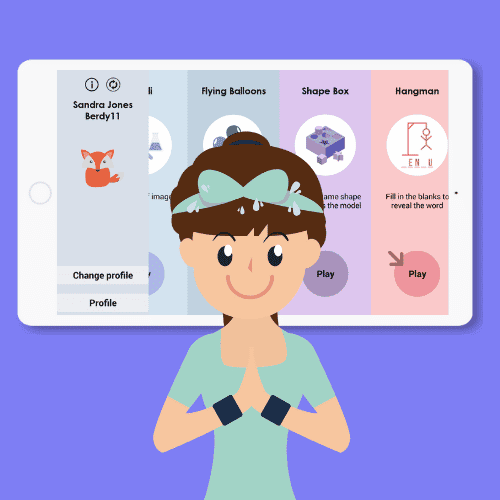
Using technology
The use of technology in senior living facilities can offer many benefits to residents. Electronic devices, such as tablets or computers, can help residents stay connected with family and friends, even if they can’t see each other in person. Communication technologies can also help residents stay informed about current news and events, which can contribute to their mental well-being. Interactive games and educational apps can help residents stimulate their minds and maintain mental agility. In addition, health tracking technologies, such as connected bracelets, can help caregivers closely monitor residents’ health and well-being. However, it is essential that the use of technology be tailored to the individual needs of residents and that it be used with caution and responsibility to preserve their privacy.
Provide access to nature
Providing access to nature for seniors in nursing homes is beneficial in many ways. Nature provides a source of sensory stimulation, physical activity and relaxation that contribute to the overall well-being of residents. Indeed, seniors can take advantage of the gardens and green spaces to walk, relax, do breathing exercises or even garden. Nature also offers therapeutic benefits, such as stress reduction, memory stimulation and mood enhancement. Outdoor activities also provide an opportunity to socialize and bond with other residents, staff and visitors. Providing access to nature for seniors in nursing homes can therefore contribute to improving their quality of life, their mental and physical health, as well as their overall sense of well-being.
Encourage social links
Encouraging social relationships in nursing homes is essential for the well-being of seniors. Social connections can be more difficult to maintain as we age, especially for people who reside in institutions. That’s why it’s important to provide social and recreational activities that promote interaction between residents, staff and visitors. These activities can take different forms, such as board games, creative workshops, outings, shows or themed events. Activities can also be organized according to the residents’ interests to encourage their participation. Encouraging social relationships in senior living facilities can help reduce loneliness and isolation, stimulate memory and cognition, and promote the general well-being of residents.
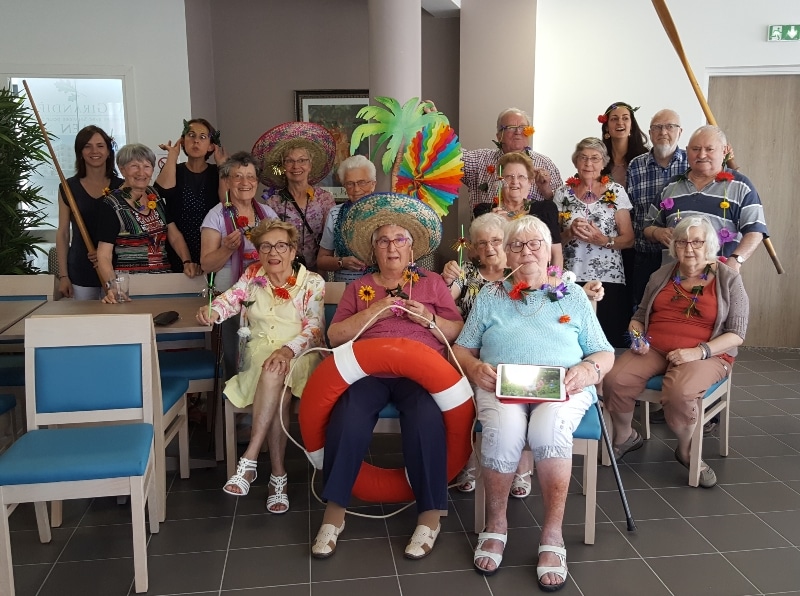
Organize events and parties
Seniors in nursing homes have the opportunity to organize themed events to liven up their daily lives. These events can be organized according to the seasons, holidays, interests or cultures of the residents. Seniors can organize events to celebrate Christmas, Easter, Valentine’s Day, Halloween or New Year’s Eve. Events can take many forms, such as themed meals, fun activities, shows, art exhibits or creative workshops. Residents can actively participate in the planning and execution of these events, allowing them to become involved in the life of the community and to create social ties. These themed events also provide an opportunity for entertainment, creativity and emotional growth.
Offer activities adapted to cognitive abilities
Offering activities adapted to the cognitive abilities of seniors in nursing homes is essential to maintain their well-being and quality of life. Residents’ cognitive abilities may vary depending on their age, health status and medical history. That is why it is important to offer activities that take into account their current cognitive abilities, while stimulating their memory, creativity and cognition. Activities can take many forms, such as memory games, reading workshops, music sessions or art therapy activities. It is also important to provide activities that allow residents to maintain their autonomy and independence, while receiving the support they need to do so. Activities adapted to the cognitive abilities of seniors in senior living facilities can help stimulate their brains, maintain their memory and cognition, as well as offer them a sense of satisfaction and accomplishment. It can also help improve their quality of life and overall sense of well-being.
An app adapted for seniors in EHPAD: SCARLETT
A brain training program with more than 30 memory games for people with mild to severe cognitive disorders, such as Alzheimer’s disease, Parkinson’s disease and other neurodegenerative diseases.
The Edith application can be used for individual or group activities. Moreover, thanks to cultural games, it allows to stimulate cognitive functions such as memory, attention or language by evoking at the same time memories and personal experiences of the seniors.
Try the app for free for 1 week, on all Android and Apple tablets!
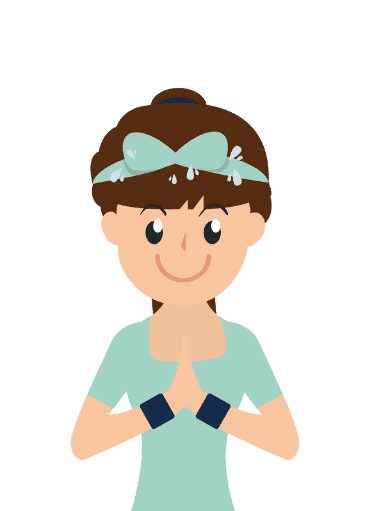
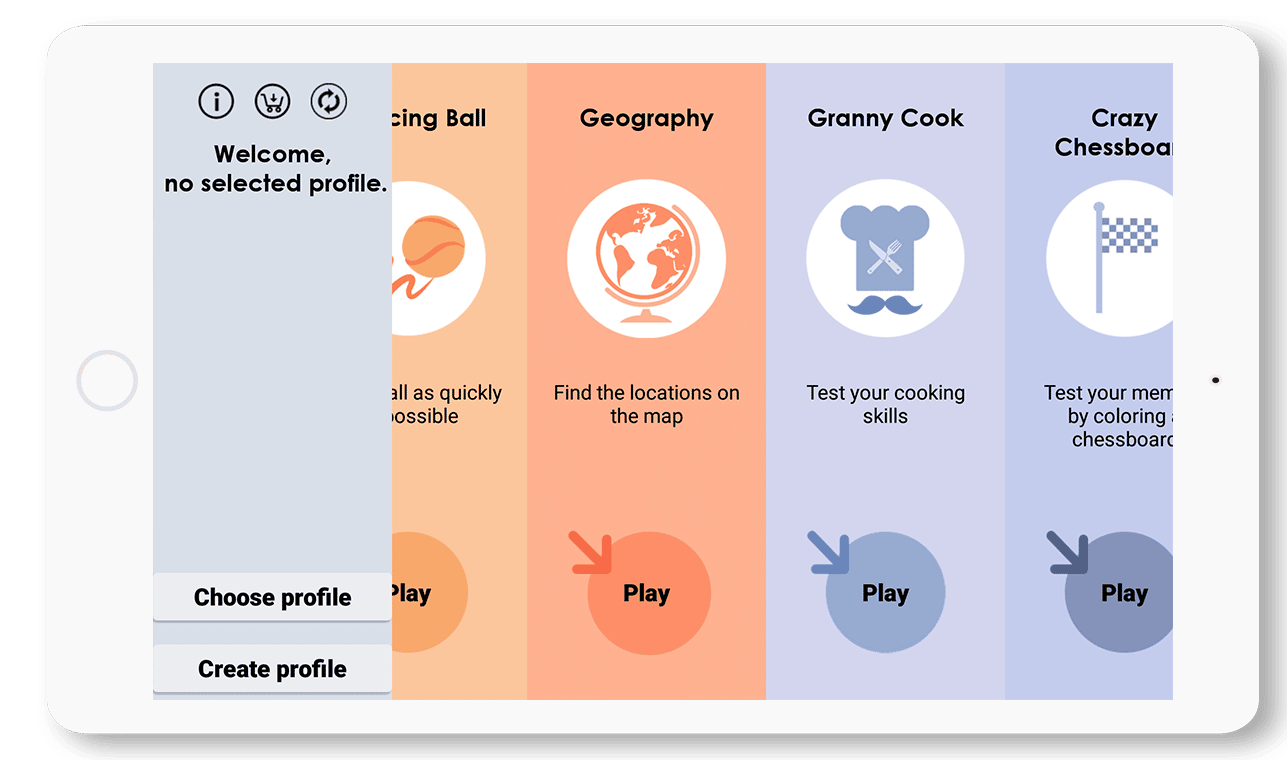
Promote continuous learning
Promoting lifelong learning for seniors in EHPAD is beneficial to their personal development, mental health and quality of life. Lifelong learning is an important practice that allows individuals to remain active and engaged while developing new skills and expanding their horizons. To encourage lifelong learning in EHPAD, it is important to provide educational activities that are tailored to the needs and interests of the residents. These activities can take many forms, such as foreign language classes, music workshops, cognitive exercise sessions, or health and nutrition management training. In addition, educational activities can also foster the development of new skills, knowledge, and open-mindedness in residents. Encouraging the continuous learning of seniors in EHPAD can therefore contribute to maintaining their autonomy, stimulating their brain, reinforcing their self-confidence and improving their general sense of well-being.
Encourage appropriate physical exercise
Adapted physical activities are very important for seniors in nursing homes, as they contribute to maintaining their health and well-being. These activities can be adapted according to the physical and cognitive abilities of each resident, allowing everyone to participate at their own level. Physical activities can take many forms, such as gentle gymnastics, walking, dancing, yoga, ball games or swimming. Adapted physical activities can also be integrated into daily life, such as walking in the garden, climbing stairs or helping with household chores. The benefits of adapted physical activities are numerous, such as improving coordination, reducing the risk of falls, stimulating blood circulation and improving mood and sleep quality. Adapted physical activities are therefore a key element in the care of seniors in EHPAD, helping to maintain their health and quality of life.
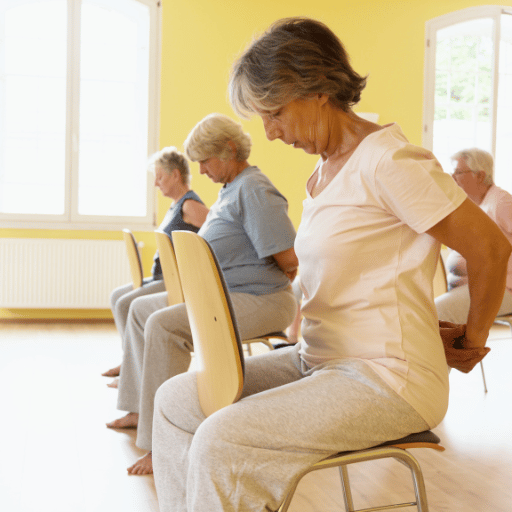
Provide volunteer services
Residents can feel useful by volunteering their time to help others. Offering volunteer services within the facility or community can help residents feel valued and engaged. For example, seniors are increasingly involved in volunteer activities with local schools. They make a great contribution by helping teachers and students with various tasks. Seniors can be involved in many areas, such as helping with homework, supervising sports activities, setting up book clubs or participating in gardening projects. Through their life experience, seniors provide valuable support to students and help them develop new skills. This volunteer involvement also allows seniors to remain active and socially engaged in their community, while making an important contribution to society.
Encouraging residents to participate in a variety of activities and providing opportunities for socialization and entertainment can help reduce boredom in the EHPAD.
Involving families to fight boredom in the senior care facilities
The involvement of families is crucial to help seniors living in nursing homes avoid boredom and feelings of abandonment. Family members can help by organizing activities with their loved ones in their residences, visiting them regularly, and communicating with them by phone or email. They may also bring personal items, such as photos, mementos, clothing or decorative items, to help residents feel at home. Family members can also support residents by participating in special events organized by the facility, attending family gatherings or sharing meals together. By actively involving families, residents can benefit from a stronger social and emotional connection, which can help reduce their boredom and feelings of isolation.
SCARLETT
An application for seniors in nursing homes, easy and adapted

TOP CULTURE
An international competition for EHPAD residents
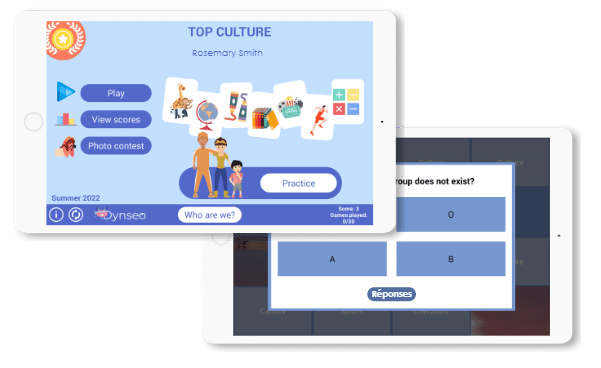
Other articles that might interest you:
The Role of Cognitive Apps in Speech Therapy for Alzheimer’s Patients
Alzheimer’s disease is a progressive neurological disorder that primarily affects memory, thinking, and behavior. As...
Memory Apps for Alzheimer’s: Enhancing Recall in Speech Therapy Sessions
Alzheimer's disease is a progressive neurological disorder that primarily affects memory, thinking, and behavior. As...
Cognitive Rehabilitation Apps for Speech Therapy with Alzheimer’s Patients
In recent years, the landscape of cognitive rehabilitation has evolved significantly, largely due to the advent of...







